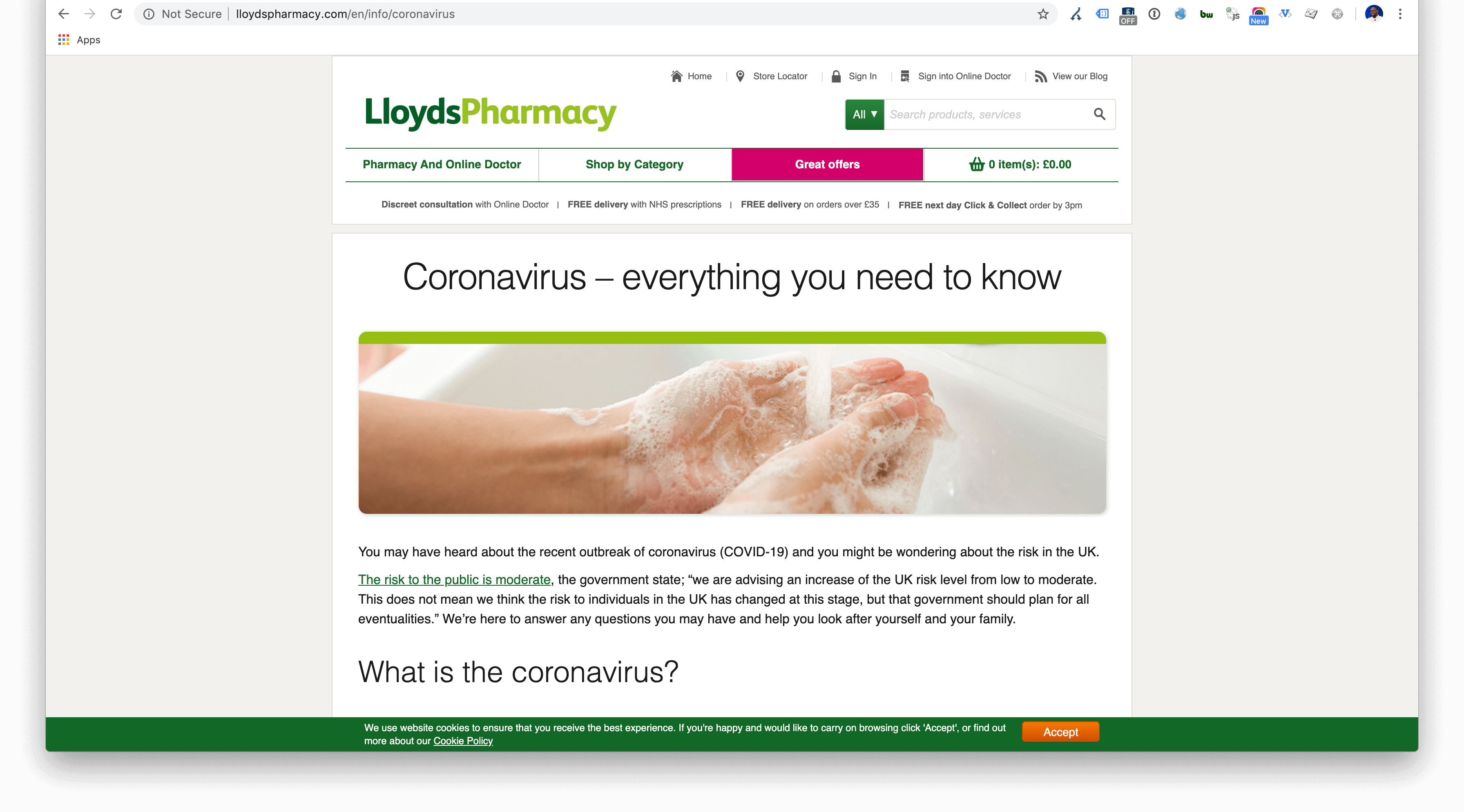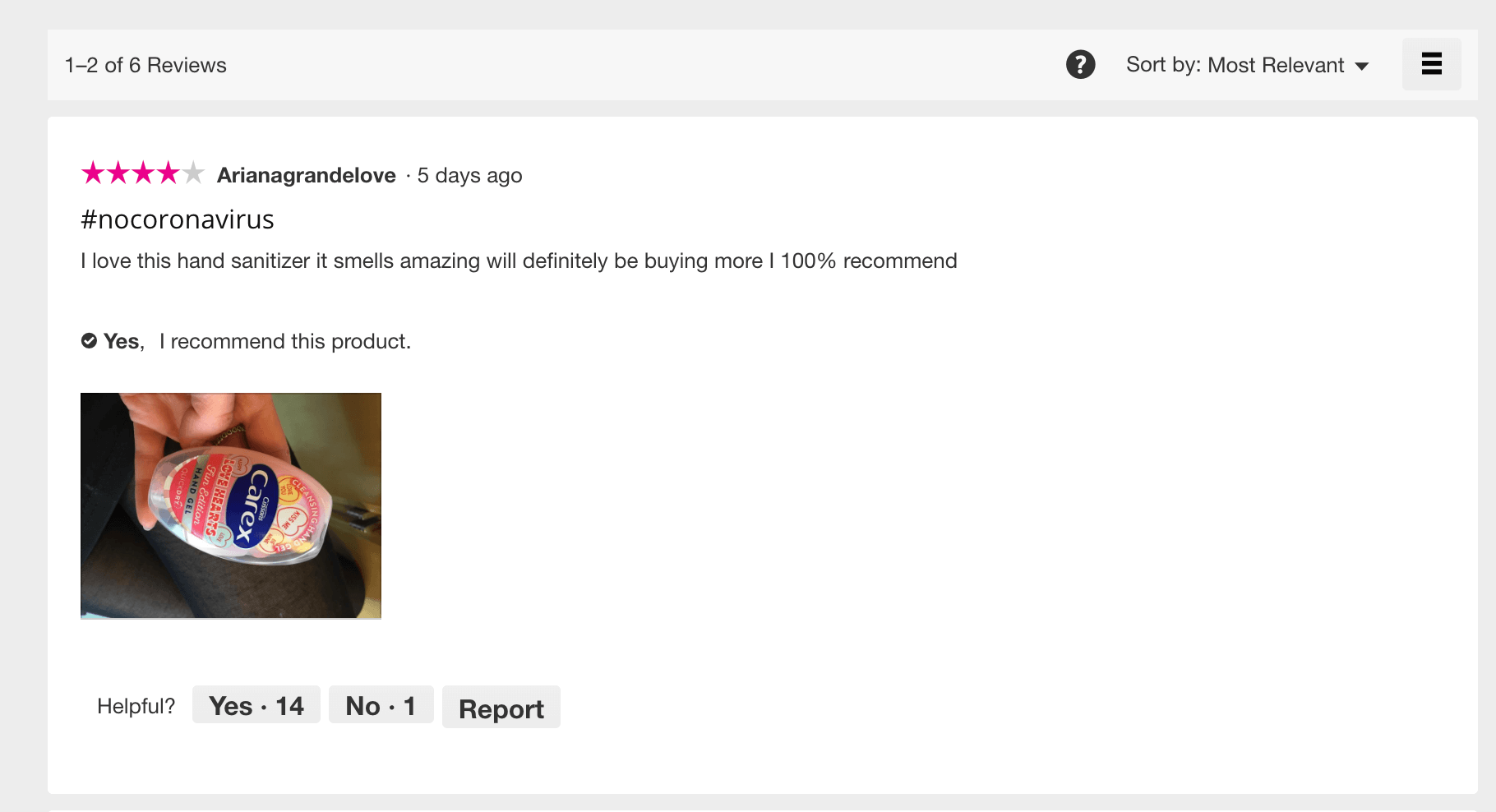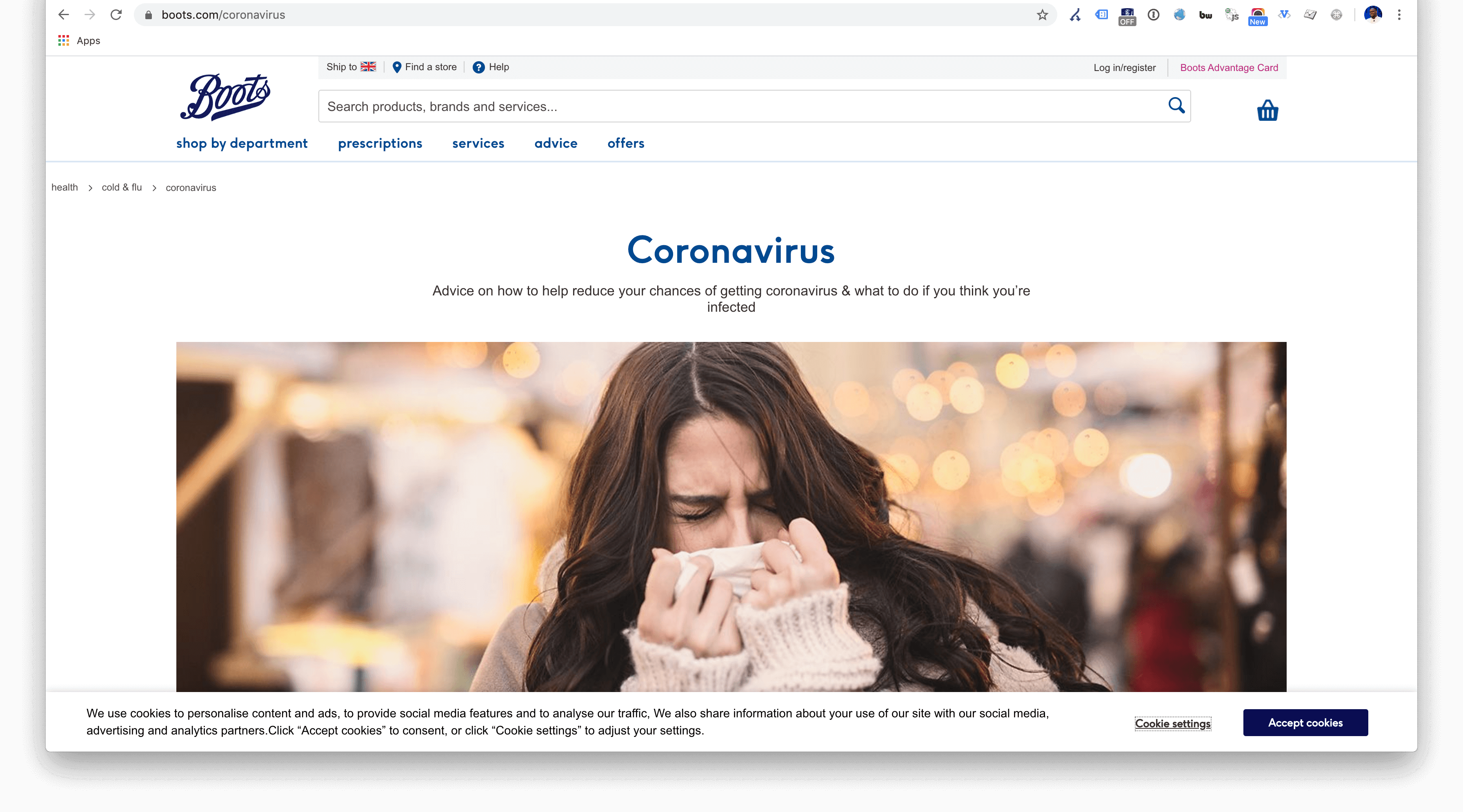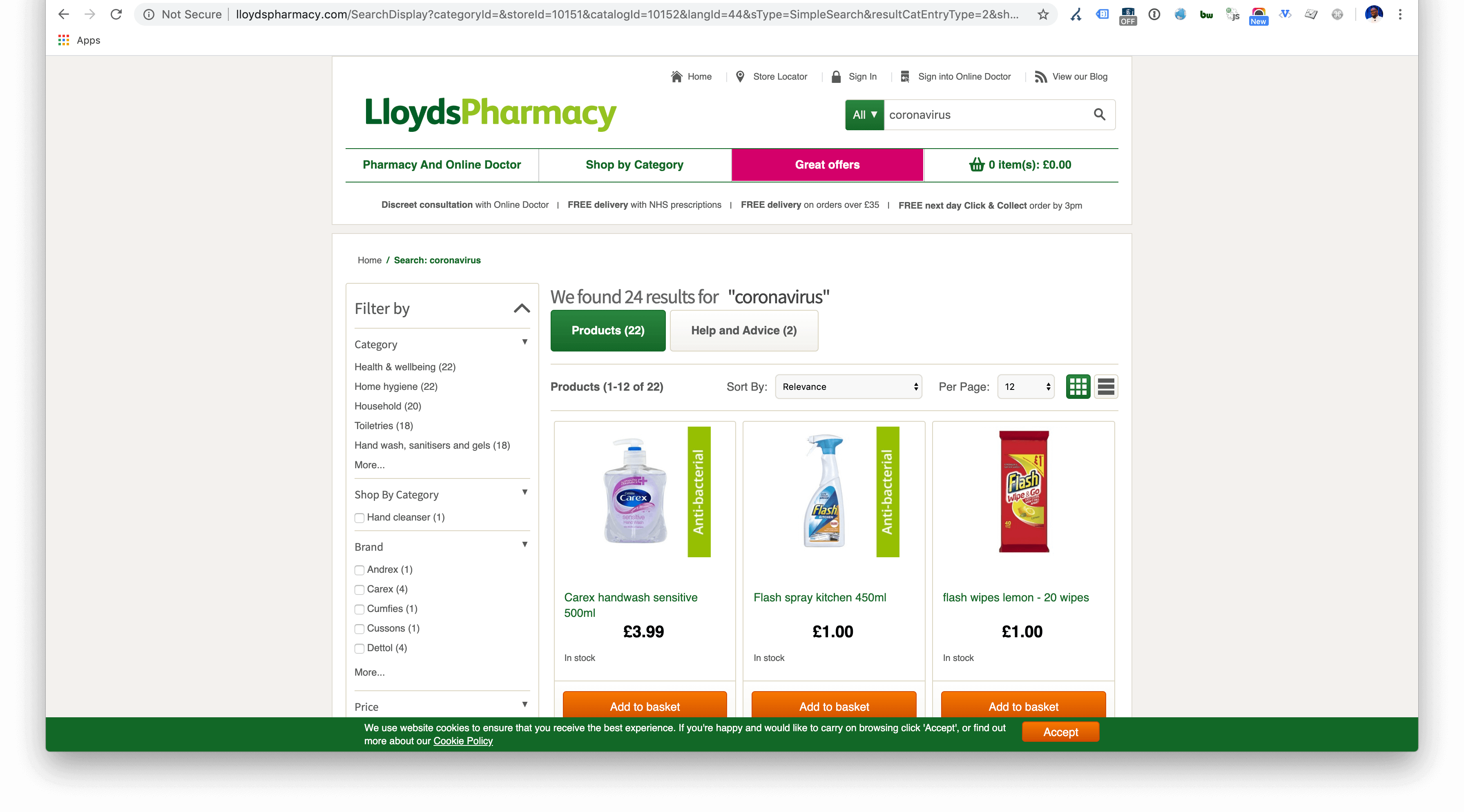The global pandemic that needs no introduction
It’s properly disruptive and naturally, it’s a worry for many people globally too.
However, I’m not a medical expert and I’m in no way pretending to be, but I do know a thing or two about eCommerce, which is what this post is ultimately about.
Everywhere you look, hand sanitiser, hand wash (and loo roll!?) are almost worthy of black market commodities right now. Almost every supermarket I’ve visited over the last week or so has been fresh out of most if not all of these now must have essentials.
With government lockdowns on the rise, an increasing number of professionals working from home and all but necessary travel on hold; you can bet that there will be an increase in the number of folks that will be depending upon their favourite eCommerce websites and brands to deliver goods to their door.
Which is why it’s now more important than ever to optimise your eCommerce website for coronavirus based queries, both internally through site search and via search engine marketing too.
Google searches for coronavirus are increasing and aren’t showing signs of slowing anytime soon
The number of people searching for coronavirus or related queries is increasing and is projected to increase even further according to Google Trends.
My point here is, people in their masses are searching for content around the topic and there’ll be a share of those Googlers that will be looking for remedies to buy online. If people are looking for coronavirus remedies, are you optimised and in front of those potential customers?
I’ve identified two healthcare household brands that are failing to optimise for coronavirus – costing them both customers and sales
1) Superdrug.com
Superdrug sells a broad range of coronavirus-busting products including hand sanitisers, hand wash, wipes, cleaning sprays; the list goes on.
However, when you search for coronavirus, on the Superdrug website, not a single result is returned:
It’s not only their site search that’s missing the mark
They’ve no content on the topic either, which means there’s almost zero chance of Superdrug ranking of appearing for coronavirus purchase intent search terms.
For their entire domain, they’ve a single result and this is actually user-generated content as a customer left a review that contained ‘coronavirus’.
As a side note, it’s cool to see Superdrug allowing their user reviews to be crawled by search engines. They can often be a great source of content and Q&A.
It’s clear to see that Superdrug are pretty much entirely out of the race when it comes to coronavirus search terms with a purchase intent.
It’s unclear how large of an opportunity this could be for the brand, but I would imagine it would absolutely be an opportunity worth chasing. Especially considering just how little work Superdrug would need to complete to fix these points.
2) hollandandbarrett.com
Another surprise to me was H&B; a largely popular health-focussed retailer that are also totally missing out on the barrage of coronavirus purchase-intent keywords and potential customers.
Having searched their internal site search again for coronavirus, it was clear that they failed to optimise for the term too:
Casting the net slightly wider, organically they’ve also wound up empty handed just like Superdrug. Not a single page contains the word coronavirus. Or to be more specific, Google isn’t able to crawl and/or index a page that contains coronavirus – at least not yet.
Who’s smashing it? Well, Boots and Lloyds Pharmacy.
A closer look at boots.com
Having taken a look at Boots, the brand is proactively working at optimising for coronavirus keywords with a landing page designed to help visitors and provide advice.
A closer look at lloydspharmacy.com
I personally prefer how Lloyds Pharmacy have approached optimising for coronavirus. To help rank organically, they’ve created a helpful and purpose built landing page complete with links to helpful products:

However, searching for coronavirus via their internal site search takes you to a number of remedies and products that are effective at killing and helping to prevent the spread of the virus; perfect for visitors with purchase intent, which most customers using the product search are likely to have:
Taking website optimisation a step further
Boots and Lloyds Pharmacy are proactively working on making it easier for customers to get the information they need and to buy the products they’re looking for to help fight the virus.
However, why not consider taking optimisation and customer experience to the next level?
Create a coronavirus product category and subcategories
Why not create a category named ‘coronavirus essentials’ or a name with a similar sentiment and break the parent category down in to sub categories. To use a few examples:
- Hand washing
- Hand sanitiser
- Surface cleansing
Just to be clear, any items that would reside in these categories would also exist in their typical locations too. This is essentially a way of merchandising products within a new and temporary category structure.
By building an experience like this, not only will you have a parent category / landing page to send visitors and customers to, it makes it much easier for customers to shop coronavirus remedies from a single entrance point.
In summary…
Optimising for coronavirus based search terms and being exposed to customers looking to purchase effective remedies and help control the spread of the virus is no bad thing.
What’s really a surprise is how two health focussed brands have missed out on one of the most talked about and concerning threats to public health in years.
In summary it’s important to both optimise for queries and consider the user experience. Whether it’s for the coronavirus, Black Friday, Mother’s Day or any other occasion, make sure potential customers can find you and when they do, you’re not making them jump through hoops to buy from you.


